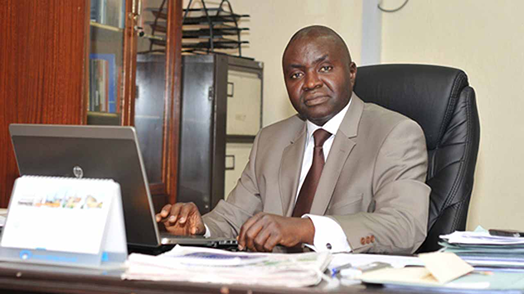The Central Bank of Nigeria (CBN) has been tasked by the Center for the Promotion of Private Enterprise (CPPE) to develop a viable intervention to ensure the moderating of the current volatility in the foreign exchange market.
CPPE stated that the system needed to be managed in a way that would not erode investors’ confidence whilst acknowledging the constraints on the supply of FX.
According to CPPE, a decline in trust leads to speculation and affects expectations, which in turn leads to a variety of reactions from economic actors.
In a statement released yesterday, Dr. Muda Yusuf, Director/Chief Executive Officer of CPPE, said that while the volatility in the foreign exchange market is unsettling, it is not unexpected given the long history of market distortions and that it would take some time to correct the entrenched distortions.
He claimed that the spike in monetary expansion over the past month has clearly put pressure on the foreign exchange market.
According to Yusuf, between May and June 2023, the money supply increased by an astounding 15%, while wide money increased by nearly N9 trillion, from N55.7 trillion to N64.9 trillion.
He claims that the unusual spike in economic growth has impacted the exchange rate.
He added that such a sudden surge in the money supply poses a serious risk to macroeconomic stability, particularly price stability, and that the monetary authorities should look into it and take action to prevent further expansion.
Yusuf further pointed out that due to the severe lack of liquidity in the foreign currency market, there had been a buildup of unmet foreign exchange demand over the previous few years that reached billions of dollars.
According to him, a more liberalized foreign exchange market has increased pressure on the Investors’ and Exporters’ (I&E) window due to the backlog of unfulfilled orders and other forex-related obligations coming due.
Yusuf noted that recent reports from the apex bank indicate a total of $17 billion intervention in the forex market in 2022, which translates to an average of N1.4 billion per month. He claimed that the frequency and scope of CBN intervention in the forex market had decreased compared to the first five months of the year.
He claimed that it was unlikely that the nation had experienced a total intervention of up to $1 billion since the start of the current administration.
According to Yusuf, another supply-side restricting factor could be the government’s recent payment of $500 million to fulfill matured debt service obligations on Eurobonds.
According to him, the current foreign exchange market volatility is a challenge that is normally present during a significant policy change, after which the instability is anticipated to abate.
According to Yusuf, the pressure on foreign exchange demand caused by petroleum product imports would decrease as domestic petroleum product refining is expected to increase in the coming months.
In order to protect the market from speculative attack and illicit capital outflows, he encouraged CBN to exert better monitoring over forex demands. He added that increased investor confidence will increase Foreign Direct Investment (FDI), foreign portfolio investments, and other remittances.
“Transiting from a repressive market environment to a more liberalised market could be a source of market instability. However, there is a need for vigilance to prevent questionable capital outflows or speculative assaults on the currency. A free market is not synonymous with a complete absence of regulation.”
“Free enterprise has to be complemented with an appropriate regulatory framework to curb illicit financial flows,” he concluded.



